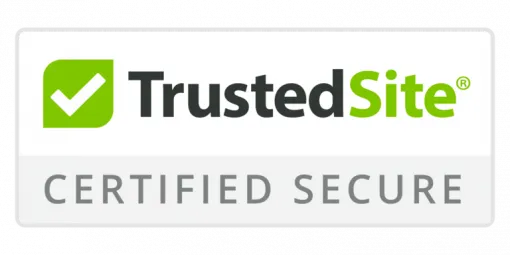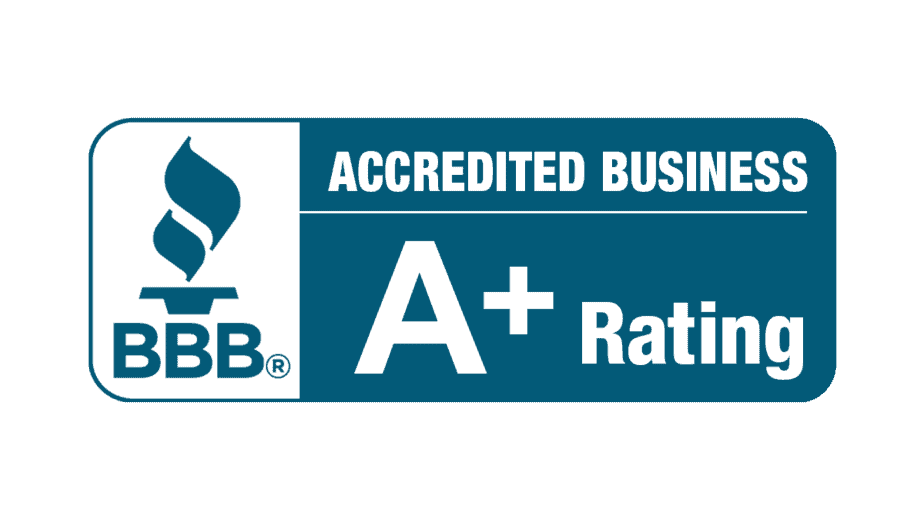Navigating the complex landscape of GDPR and HIPAA compliance can be daunting for any organization. With continually evolving regulations and new threats emerging, ensuring compliance is not just a necessity but a critical aspect of safeguarding your business. This is where the side hustle of offering compliance consulting for GDPR and HIPAA comes into play.
How Compliance Consulting for GDPR and HIPAA Works
Compliance consulting involves offering expert advice to organizations to help them adhere to GDPR and HIPAA regulations. These consultants assess current data security measures, identify potential risks, and recommend strategies for achieving compliance. They also provide training for staff, conduct regular audits, and help implement policies and procedures that align with legal requirements.
Here's a step-by-step guide to implementing this side hustle:
- Acquire Expertise: Gain a thorough understanding of GDPR and HIPAA regulations. This can be achieved through specialized courses, certifications, and staying updated with any changes in the laws.
- Develop a Business Plan: Outline your services, target market, pricing strategy, and marketing plan. Decide whether you will offer a comprehensive service package or focus on specific areas like data encryption, employee training, or policy development.
- Build a Network: Connect with healthcare providers, tech companies, and other organizations that require compliance services. Use platforms like LinkedIn, industry conferences, and local business events to build relationships.
- Create Resources: Develop templates, checklists, and training materials that you can use with clients. These resources should be tailored to address the specific requirements of GDPR and HIPAA.
- Market Your Services: Use online marketing strategies such as SEO, content marketing, and social media to reach potential clients. Highlight your expertise through blog posts, webinars, and whitepapers.
- Offer Consultations: Start with initial consultations to assess the client's current compliance status. Provide a detailed report of your findings along with a roadmap for achieving full compliance.
- Implement Solutions: Work closely with your clients to implement the necessary changes. This may involve updating security measures, conducting training sessions, and developing new policies.
- Regular Audits and Updates: Offer ongoing support to ensure that your clients remain compliant as regulations evolve. Conduct regular audits and provide updates on any changes in the law.
Benefits of Compliance Consulting
- Risk Mitigation: Help organizations avoid hefty fines and reputational damage associated with non-compliance.
- Enhanced Security: Improve data protection measures, thus safeguarding sensitive information.
- Operational Efficiency: Streamline processes and reduce the burden on internal teams by providing expert guidance.
By offering compliance consulting services for GDPR and HIPAA, you not only provide a valuable service to organizations but also create a lucrative side hustle for yourself. With the right expertise and a strategic approach, you can help businesses navigate the complexities of data protection regulations effectively.
Understanding GDPR and HIPAA Basics
As you begin to navigate the complex landscape of compliance for your side hustle, understanding the fundamental principles of GDPR and HIPAA is crucial.
GDPR primarily regulates the handling of personal data for EU residents, whereas HIPAA focuses on safeguarding protected health information (PHI) in the United States. You'll need to grasp GDPR fundamentals, including the rights of data subjects, data protection by design and default, and the roles of data controllers and processors. This knowledge will empower you to implement measures that guarantee the secure processing of personal data, such as obtaining explicit consent and conducting data protection impact assessments, which is essential if your side hustle involves handling personal data.
On the other hand, understanding HIPAA principles involves recognizing the importance of safeguarding PHI, which includes any individually identifiable health information. For a side hustle in the healthcare sector, you must ensure that all PHI is encrypted and access is restricted to authorized personnel only.
Furthermore, you'll need to establish policies and procedures for handling breaches and incidents, as well as provide training to any collaborators on HIPAA compliance. By understanding these basics, you'll lay the groundwork for ensuring compliance with both GDPR and HIPAA, which can help you avoid costly fines and reputational damage for your side hustle.
Familiarizing yourself with these regulations will secure your business operations and build trust with your clients.
Importance of Compliance Consulting
When navigating the complexities of GDPR and HIPAA compliance for your side hustle, leveraging the expertise of a compliance consultant can provide critical guidance on implementing robust data protection measures. As an entrepreneur, you're likely aware of the weight of regulatory frameworks governing data security, and the intricacies can be formidable. A compliance consultant helps you navigate these complexities, ensuring your side hustle aligns with the prescribed standards.
Their expertise proves invaluable when conducting compliance audits, which can be challenging and resource-intensive. You'll need to identify vulnerabilities, assess risks, and implement corrective actions, all while maintaining meticulous documentation. A compliance consultant streamlines this process, identifying key areas of improvement and providing recommendations for enhancement.
Compliance Consulting Service Benefits
When you engage a compliance consulting service as a side hustle, you'll realize numerous benefits that enhance your clients' overall compliance posture.
By leveraging your expertise as a compliance consultant, you'll help clients identify and mitigate compliance risks, bolster data security, and optimize their compliance processes.
Ultimately, this enables your clients to reduce their regulatory burden, freeing up resources for more strategic initiatives.
Mitigating Compliance Risks
By engaging a compliance consulting service for your side hustle, you can proactively identify and mitigate compliance risks associated with GDPR and HIPAA, thereby minimizing the likelihood of costly fines, reputational damage, and legal repercussions.
A thorough risk assessment is conducted to pinpoint vulnerabilities in your systems, processes, and policies, enabling you to address potential issues before they escalate into major problems. In the event of a data breach, a compliance consulting service can provide invaluable guidance on incident response and mitigation strategies, helping you contain the damage and prevent further breaches.
With a deep understanding of GDPR and HIPAA regulations, a compliance consulting service can help you develop a tailored compliance plan, guaranteeing that your side hustle adheres to all relevant requirements.
By staying on top of regulatory updates and changes, you can maintain a strong compliance posture and reduce the risk of non-compliance.
Improving Data Security
Engaging a compliance consulting service enables you to implement robust data security measures specifically tailored to protect sensitive information and prevent unauthorized access, thereby reducing the risk of data breaches and cyber attacks that can compromise your side hustle's GDPR and HIPAA compliance.
With a consulting service, you can ensure the deployment of effective data encryption methods to safeguard sensitive data both in transit and at rest. This includes encrypting data on all devices, such as laptops, mobile devices, and servers.
Additionally, you'll establish stringent access controls to restrict access to sensitive information only to authorized personnel within your side hustle. This involves implementing role-based access controls, multi-factor authentication, and password management policies.
A compliance consulting service will also assist you in identifying vulnerabilities and applying patches to prevent exploitation. By enhancing your data security measures, you can significantly reduce the risk of data breaches and ensure compliance with GDPR and HIPAA regulations, ultimately protecting your side hustle's reputation and avoiding costly penalties.
Reducing Regulatory Burden
You can significantly reduce the regulatory burden associated with GDPR and HIPAA compliance for your side hustle by leveraging a compliance consulting service. By outsourcing these tasks, you can focus more on growing your side hustle and less on navigating complex regulatory requirements.
A compliance consulting service can help your side hustle stay compliant with GDPR and HIPAA by:
- Identifying and mitigating compliance risks specific to your side hustle
- Developing and implementing tailored compliance policies and procedures
Identifying Non-Compliance Risks
As you navigate the complexities of GDPR and HIPAA compliance in your side hustle, identifying potential non-compliance risks is essential to mitigating risk exposure and avoiding costly penalties.
You'll need to pinpoint common triggers that can lead to non-compliance, such as inadequate data protection policies, insufficient employee training, and outdated security measures.
Common Non-Compliance Triggers
Individuals engaged in side hustles, especially those handling sensitive client information, face significant risks of non-compliance with GDPR and HIPAA regulations due to a range of common triggers, including inadequate data security measures, insufficient personal training, and ineffective data breach response plans.
When managing sensitive data in your side hustle, you're exposed to various non-compliance risks. Your documentation processes, privacy policies, and audit trails may be insufficient, leaving you vulnerable to data breaches and regulatory penalties.
To identify potential non-compliance triggers in your side hustle, consider the following common culprits:
- Inadequate personal training: Uninformed individuals may unintentionally compromise data security, leading to costly breaches and reputational damage.
- Insufficient third-party vendor oversight: Failing to properly vet and monitor third-party vendors can expose your side hustle to unnecessary risks.
Mitigating Risk Exposure
Proactive identification of non-compliance risks is a critical step in mitigating risk exposure for your side hustle, as it enables the implementation of targeted strategies to address potential vulnerabilities and strengthen overall data protection.
You'll need to conduct a thorough risk assessment to pinpoint areas where your side hustle may be falling short of GDPR and HIPAA requirements. This involves analyzing your data handling practices, identifying potential threats, and evaluating the likelihood and potential impact of a data breach.
Regular compliance audits are also essential in identifying non-compliance risks. By reviewing your policies, procedures, and systems, you can detect gaps in your compliance posture and take corrective action before a breach occurs.
Your audit should include an examination of access controls, data encryption, incident response plans, and employee training programs.
By taking proactive steps to identify and address non-compliance risks, you can greatly reduce your risk exposure and guarantee the confidentiality, integrity, and availability of sensitive data.
Don't wait until a breach occurs; take control of your risk exposure today and maintain the trust of your customers and stakeholders in your side hustle.
Creating Effective Compliance Strategies
To guarantee seamless adherence to GDPR and HIPAA regulations in your side hustle, you must develop an extensive compliance strategy that integrates risk assessment, data protection policies, and employee training programs.
Effective strategy development begins with a thorough risk assessment to identify vulnerabilities in your side hustle's data handling practices. This assessment will inform the development of targeted policies and procedures.
When creating your compliance strategy for your side hustle, consider the following key elements:
- Risk Assessment: Conduct a thorough analysis of your side hustle's data handling practices to identify vulnerabilities and potential risks.
- Policy Development: Develop clear, concise policies that outline data protection procedures and protocols specific to your side hustle.
Implementing Data Protection Measures
To ensure your side hustle remains compliant, it's crucial to integrate robust data protection measures that address the risks identified during your risk assessment. This includes securing data both at rest and in transit.
Implementing data encryption for stored and transmitted data is essential, as it ensures that unauthorized parties can't read or exploit your information, even if they gain access to it.
For effective data encryption, utilize industry-standard protocols and algorithms such as AES or TLS.
Additionally, enforce strict access controls to safeguard sensitive information. This involves setting up role-based access controls, employing multi-factor authentication, and adhering to secure password management practices.
Maintaining Ongoing Compliance
Maintaining Ongoing Compliance for Your Side Hustle
Compliance for your side hustle isn't a one-time achievement but an ongoing process that requires regular monitoring, assessments, and updates to ensure you continuously meet GDPR and HIPAA standards. You'll need to stay on top of changing regulations, new technologies, and emerging threats to maintain ongoing compliance.
To achieve this, you should:
- Conduct regular risk assessments to identify potential vulnerabilities in your side hustle's systems and processes.
- Perform ongoing audits to ensure your controls and procedures are operating effectively within the context of your side hustle.
Mitigating Non-Compliance Penalties
In the event of a GDPR or HIPAA violation related to your side hustle, mitigating penalties for non-compliance hinges on your ability to demonstrate a good-faith effort to implement and maintain compliant systems and procedures.
You must show that you've taken proactive steps to prevent breaches and respond promptly in the event of an incident. This requires ongoing monitoring, regular compliance audits, and swift remediation of any identified vulnerabilities.
During a penalty assessment, regulators will scrutinize your side hustle's compliance posture, taking into account factors such as the severity of the breach, the effectiveness of your response, and the measures you've implemented to prevent similar incidents.
By having a robust compliance framework in place, you can minimize the severity of penalties and demonstrate a commitment to data protection. This may also involve cooperation with regulatory authorities, timely breach notification, and a willingness to implement corrective actions.
Through proactive compliance efforts and effective incident response, you can mitigate the impact of non-compliance penalties and protect your side hustle's reputation.
Conclusion
By offering GDPR and HIPAA compliance consulting as a side hustle, you're providing a critical service that safeguards organizations' data, much like adding a firewall to a network.
With your expert guidance, businesses can navigate complex regulatory landscapes, mitigate non-compliance risks, and optimize data protection measures.
Your consulting services make compliance a seamless aspect of their operations, freeing up their resources to focus on growth and innovation, rather than getting bogged down by regulatory complexities and non-compliance penalties.
Continuous auditing and adaptation to changes ensure that your clients enjoy ongoing protection.

















































0
View comments